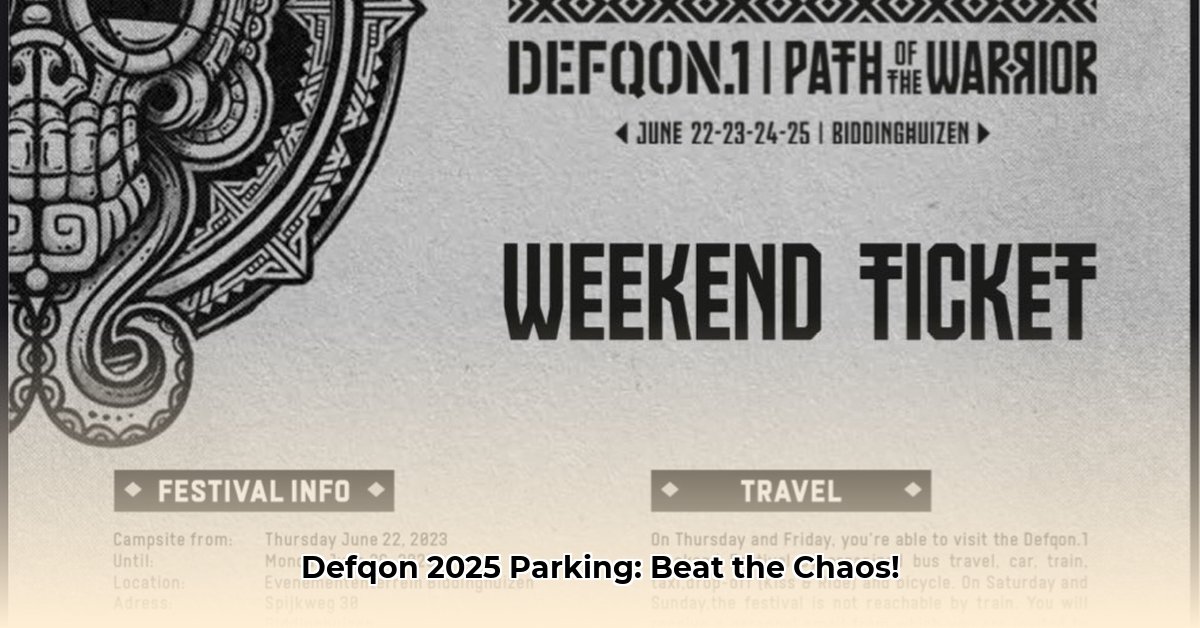
Defqon Parking Ticket Headaches: Lessons Learned from Defqon.1 2025
Defqon.1 2025, while a resounding success with a complete sell-out, highlighted some operational challenges, particularly regarding parking ticket distribution. This article analyses these issues, offering actionable recommendations for attendees and organisers alike to ensure a smoother experience in future editions.
A Sold-Out Success, But With Room for Improvement: Event Overview
The massive attendance at Defqon.1 2025 demonstrated the festival's enduring popularity and the effectiveness of its marketing strategies. However, the high turnout also exposed logistical vulnerabilities, particularly in relation to parking and ticket distribution. While the overall experience remained positive for many, these challenges indicate opportunities for significant improvement. Isn't smooth event logistics vital for a truly legendary experience?
Tickets and Parking: Navigating Success and Challenges
While Q-dance successfully thwarted ticket scalpers using secure transfer options and waiting lists, the parking ticket process itself presented several hurdles. Many attendees reported difficulties activating their bracelets and accessing their parking tickets, suggesting logistical bottlenecks that require attention. This raises the question: how effectively did Q-dance communicate the new parking and bracelet system?
Communication Breakdown: The Missing Message
While the festival's official FAQ page offered comprehensive information, crucial details about parking ticket redemption and bracelet activation were frequently missed. The necessity for many attendees to check their spam folders points to a major communication breakdown. What percentage of attendees experienced this communication shortfall? To avoid this in future years, clear, concise, and multi-platform communication is imperative. The inclusion of SMS alerts could significantly improve communication reliability.
Logistical Logjam: Bracelet Distribution and Parking Woes
The bracelet distribution process caused significant delays, with many attendees requiring assistance with activation. This highlights a need for improvements in system design and on-site support. Did the current system effectively manage the high volume of attendees? The answer is clear – it needs refinement to cope with the massive demand effectively.
Recommendations for Improvement: A Multi-Stakeholder Approach
The following table outlines both short-term and long-term recommendations for various stakeholders:
| Stakeholder | Short-Term Solutions | Long-Term Strategies |
|---|---|---|
| Attendees | Regularly check all email folders; familiarize yourself with online activation processes. | Plan for potential delays, proactively seeking updates from official channels. |
| Q-Dance (Organizers) | Simplify the parking & bracelet system; enhance FAQs accessibility; improve email delivery rates. | Invest in predictive modelling to accurately forecast demand; develop alternative parking solutions; employ a multi-channel communication strategy. |
| Security Personnel | Enhance bracelet verification procedures; streamline entry points. | Invest in advanced crowd management technologies; provide comprehensive training on new ticketing systems. |
| Payment Processors | Implement more robust fraud detection mechanisms; expedite payment processing. | Explore diverse payment gateways; improve efficiency for international attendees. |
Parking Tickets: A Detailed Analysis of the Problems
The parking ticket system revealed significant weaknesses. Was the information provided sufficiently clear and easily accessible? Did the process itself prove efficient and user-friendly? Feedback indicates that a substantial portion of attendees struggled with parking logistics. Therefore, implementing a parking reservation system which would allow for pre-event parking allocation seems like an essential step toward improvement.
The Path Forward: Ensuring a Smoother Defqon.1 Experience
In conclusion, while Defqon.1 2025 was overwhelmingly successful, several key areas demand improvement. Addressing communication gaps and refining logistical processes, especially regarding parking and bracelet activation, are crucial for enhancing the overall attendee experience. Proactive planning, clear communication, and a data-driven approach are key to achieving this. The festival should consider A/B testing different communication strategies to optimize efficiency and clarity.